When a Writer Faces a True Life Crisis
Recently,
I have been trying to help a dear friend, who’s dealing with major
chronic illness, the results of unhealed traumatic brain injury,
vision problems, flood and tornado damage to her farm and house, and
a right hand where a bone has come completely unmoored, requiring
hand surgery. This woman, almost 70, is a major poet and novelist. In
fact, her most famous and successful novel is often included on lists
of Best Novels of the 20th Century.
(The problem is that she was robbed of all royalties for this book
that’s just been issued in a new edition after twenty printings.
Never saw a dime, was told it just wasn’t selling, and now has a
lawyer from the Authors Guild working on trying to recover some of
her stolen monies.)
I have been trying to help a dear friend, who’s dealing with major
chronic illness, the results of unhealed traumatic brain injury,
vision problems, flood and tornado damage to her farm and house, and
a right hand where a bone has come completely unmoored, requiring
hand surgery. This woman, almost 70, is a major poet and novelist. In
fact, her most famous and successful novel is often included on lists
of Best Novels of the 20th Century.
(The problem is that she was robbed of all royalties for this book
that’s just been issued in a new edition after twenty printings.
Never saw a dime, was told it just wasn’t selling, and now has a
lawyer from the Authors Guild working on trying to recover some of
her stolen monies.)
My
friend struggles to deal with all these issues, including massive
amounts of pain, as she lives a financially precarious life based on
reading and workshop fees and visiting writer gigs. She lost her
tenured professorship years ago when she suffered TBI, and they
wouldn’t allow her time for rehabilitation. She has recovered her
ability to write beautifully, to teach, to give talks and readings,
but the executive ability of her brain is permanently damaged,
meaning she can’t organize her papers, she loses track of dates and
commitments, and she basically can’t find what she needs when she
needs it. And now the vision problem and the need for surgery on her
hand have struck.
friend struggles to deal with all these issues, including massive
amounts of pain, as she lives a financially precarious life based on
reading and workshop fees and visiting writer gigs. She lost her
tenured professorship years ago when she suffered TBI, and they
wouldn’t allow her time for rehabilitation. She has recovered her
ability to write beautifully, to teach, to give talks and readings,
but the executive ability of her brain is permanently damaged,
meaning she can’t organize her papers, she loses track of dates and
commitments, and she basically can’t find what she needs when she
needs it. And now the vision problem and the need for surgery on her
hand have struck.
As
part of what I’ve been doing to help her, other than to be a
shoulder to cry on long distance, I have been researching sources of
help for writers in real crisis like this. And I have discovered that
there are a number of resources out there. I’ve sent them to her
and am now helping her to apply for some financial aid to hire
someone to deal with the tornado and flood damage and to hire a
college student to help her organize her papers, set up a filing
system, coordinate her calendar, and help her with typing on the new
novel she’s been trying so hard to finish during all this.
part of what I’ve been doing to help her, other than to be a
shoulder to cry on long distance, I have been researching sources of
help for writers in real crisis like this. And I have discovered that
there are a number of resources out there. I’ve sent them to her
and am now helping her to apply for some financial aid to hire
someone to deal with the tornado and flood damage and to hire a
college student to help her organize her papers, set up a filing
system, coordinate her calendar, and help her with typing on the new
novel she’s been trying so hard to finish during all this.
It
made me think about the knife edge many of us live on as writers. I’d
have been in her situation recently when going through cancer
treatments and surgeries while already dealing with chronic,
disabling illness—if I hadn’t had my dear, supportive, gainfully
employed husband but had been all alone like her. So I thought I’d
post the resources for writers in emergency situations here for all
our readers. Maybe save it for a rainy day—because you never know
when you might be facing similar difficulties.
made me think about the knife edge many of us live on as writers. I’d
have been in her situation recently when going through cancer
treatments and surgeries while already dealing with chronic,
disabling illness—if I hadn’t had my dear, supportive, gainfully
employed husband but had been all alone like her. So I thought I’d
post the resources for writers in emergency situations here for all
our readers. Maybe save it for a rainy day—because you never know
when you might be facing similar difficulties.
http://www.pen.org/writers-emergency-fund –
This is the granddaddy of all emergency grants to writers. PEN
realized how vulnerable writers could be many, many years ago and set
up this fund, which has grown through the years and allowed them to
help hundreds of writers in emergency
situations.
This is the granddaddy of all emergency grants to writers. PEN
realized how vulnerable writers could be many, many years ago and set
up this fund, which has grown through the years and allowed them to
help hundreds of writers in emergency
situations.
http://www.thehavenfdn.org/about –
This is a foundation funded by Stephen King after he was struck by a
hit-and-run driver and lost years of work to surgeries and
rehabilitation. King, of course, was a millionaire, so it wasn’t a
financial hardship for him, but he came from poverty and thought
about what this would have done to him when he was starting out and
hadn’t had a bestseller yet. This fund not only provides a sum up
front for emergencies, but can provide up to $2,000/month for six or
more months while someone is going through a major situation and
trying to get back on her/his feet. Yay, Stephen King!
Change,
Inc.
(212)
473-3742
Change,
Inc. provides one-time emergency grants of up to $1,000 to artists of
any discipline. Applicants must be professional artists who can
demonstrate need. Each applicant must submit a detailed letter
describing the financial emergency, copies of outstanding bills,
medical fee estimates and current financial statements, along with a
career resume, reviews, exhibition or performance announcements, and
two letters of reference from someone in affiliated field. For more
information, write to:
Change Emergency Funds
Change, Inc.
P.O.
Box 54
Captiva, FL 33924
Inc.
(212)
473-3742
Change,
Inc. provides one-time emergency grants of up to $1,000 to artists of
any discipline. Applicants must be professional artists who can
demonstrate need. Each applicant must submit a detailed letter
describing the financial emergency, copies of outstanding bills,
medical fee estimates and current financial statements, along with a
career resume, reviews, exhibition or performance announcements, and
two letters of reference from someone in affiliated field. For more
information, write to:
Change Emergency Funds
Change, Inc.
P.O.
Box 54
Captiva, FL 33924
Carnegie
Fund for Authors
The
Carnegie Fund offers grants to published writers who are in need due
to an emergency, whether medical or otherwise. The fund does not
award grants for work projects.
Individuals wishing to apply can
write to the following address to request an application:
Carnegie
Fund for Authors
Post Office Box 409
Lenox Hill Station
New
York, NY 10021
Fund for Authors
The
Carnegie Fund offers grants to published writers who are in need due
to an emergency, whether medical or otherwise. The fund does not
award grants for work projects.
Individuals wishing to apply can
write to the following address to request an application:
Carnegie
Fund for Authors
Post Office Box 409
Lenox Hill Station
New
York, NY 10021
Author’s
League Fund
31
East 32nd Street, 7th Floor
New York, NY 10016
Fund offers
interest-free loans of between $2,000 and $3,000 to writers with
severe medical/health-related problems and other serious misfortunes.
No membership necessary. Application and details available on web
site: www.authorsleaguefund.org Most
supportive of older authors
League Fund
31
East 32nd Street, 7th Floor
New York, NY 10016
Fund offers
interest-free loans of between $2,000 and $3,000 to writers with
severe medical/health-related problems and other serious misfortunes.
No membership necessary. Application and details available on web
site: www.authorsleaguefund.org Most
supportive of older authors
American
Poets Fund- Emergency Funds
The
Academy of American Poets
584 Broadway Suite 1208
New York, NY
10012
The fund assists poets of demonstrated ability who are in a
state of urgent financial need. Grants cannot be used to promote or
otherwise enhance literary talent or reputation, and applications are
not accepted. Academy Chancellors, Fellows, and prize winners must
bring the circumstances of qualifying poets to the attention of the
American Poets Fund committee by sending a letter of nomination,
including specifics about the nominee’s current financial situation,
to the Executive Director of the Academy. For more information,
please visit: www.speculativeliterature.org/Writing/medical.php
Poets Fund- Emergency Funds
The
Academy of American Poets
584 Broadway Suite 1208
New York, NY
10012
The fund assists poets of demonstrated ability who are in a
state of urgent financial need. Grants cannot be used to promote or
otherwise enhance literary talent or reputation, and applications are
not accepted. Academy Chancellors, Fellows, and prize winners must
bring the circumstances of qualifying poets to the attention of the
American Poets Fund committee by sending a letter of nomination,
including specifics about the nominee’s current financial situation,
to the Executive Director of the Academy. For more information,
please visit: www.speculativeliterature.org/Writing/medical.php
I
hope none of our readers or bloggers ever need these resources, but
even then, one of our friends might, so I’d suggest you save this
information somewhere permanent. Often people like my friend will
struggle alone in silence through heartbreaking circumstances because
they have no idea that such help exists.
hope none of our readers or bloggers ever need these resources, but
even then, one of our friends might, so I’d suggest you save this
information somewhere permanent. Often people like my friend will
struggle alone in silence through heartbreaking circumstances because
they have no idea that such help exists.
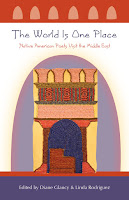 Linda Rodriguez’s Plotting the
Linda Rodriguez’s Plotting theCharacter-Driven Novel, based on her popular workshop, and The
World Is One Place: Native American Poets Visit the Middle East,
an anthology she co-edited, are her newest books. Every Family
Doubt, her fourth mystery novel featuring Cherokee campus police
chief, Skeet Bannion, will appear January 17, 2018. Her three earlier
Skeet novels—Every Hidden Fear, Every Broken Trust,
and Every Last Secret—and
her books of poetry—Skin Hunger
and Heart’s Migration—have
received critical recognition and awards, such as St. Martin’s
Press/Malice Domestic Best First Novel, International
Latino Book Award, Latina Book Club Best Book of 2014, Midwest Voices
& Visions, Elvira Cordero Cisneros Award, Thorpe Menn Award, and
Ragdale and Macondo fellowships. Her short story, “The Good
Neighbor,” published in the anthology, Kansas City Noir, has
been optioned for film.
Rodriguez is past chair of the AWP
Indigenous Writer’s Caucus, past president of Border Crimes chapter
of Sisters in Crime, founding board member of Latino Writers
Collective and The Writers Place, and a member of International
Thriller Writers, Wordcraft Circle of Native American Writers and
Storytellers, and Kansas City Cherokee Community. Visit her at
http://lindarodriguezwrites.blogspot.com
Indigenous Writer’s Caucus, past president of Border Crimes chapter
of Sisters in Crime, founding board member of Latino Writers
Collective and The Writers Place, and a member of International
Thriller Writers, Wordcraft Circle of Native American Writers and
Storytellers, and Kansas City Cherokee Community. Visit her at
http://lindarodriguezwrites.blogspot.com


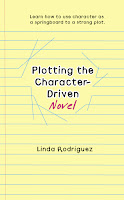


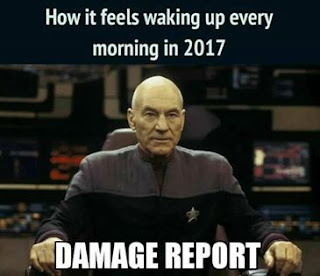
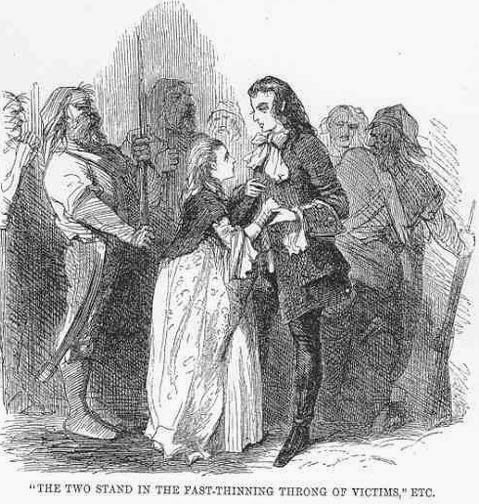




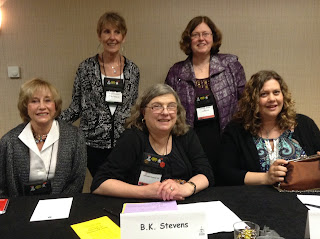
It's encouraging that these resources exist, and quite discouraging that we don't have a strong safety net in place for all.
Yes, Mary. If we only had a strong, solid safety net, what a difference that would make!